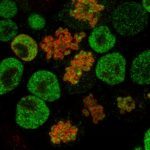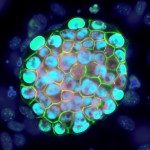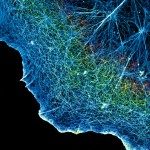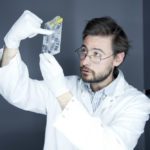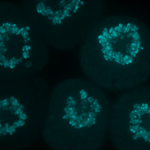Link to Pubmed [PMID] – 27723719
Nat. Cell Biol. 2016 Oct;
Pluripotent mouse embryonic stem cells maintain their identity throughout virtually infinite cell divisions. This phenomenon, referred to as self-renewal, depends on a network of sequence-specific transcription factors (TFs) and requires daughter cells to accurately reproduce the gene expression pattern of the mother. However, dramatic chromosomal changes take place in mitosis, generally leading to the eviction of TFs from chromatin. Here, we report that Esrrb, a major pluripotency TF, remains bound to key regulatory regions during mitosis. We show that mitotic Esrrb binding is highly dynamic, driven by specific recognition of its DNA-binding motif and is associated with early transcriptional activation of target genes after completion of mitosis. These results indicate that Esrrb may act as a mitotic bookmarking factor, opening another perspective to molecularly understand the role of sequence-specific TFs in the epigenetic control of self-renewal, pluripotency and genome reprogramming.
